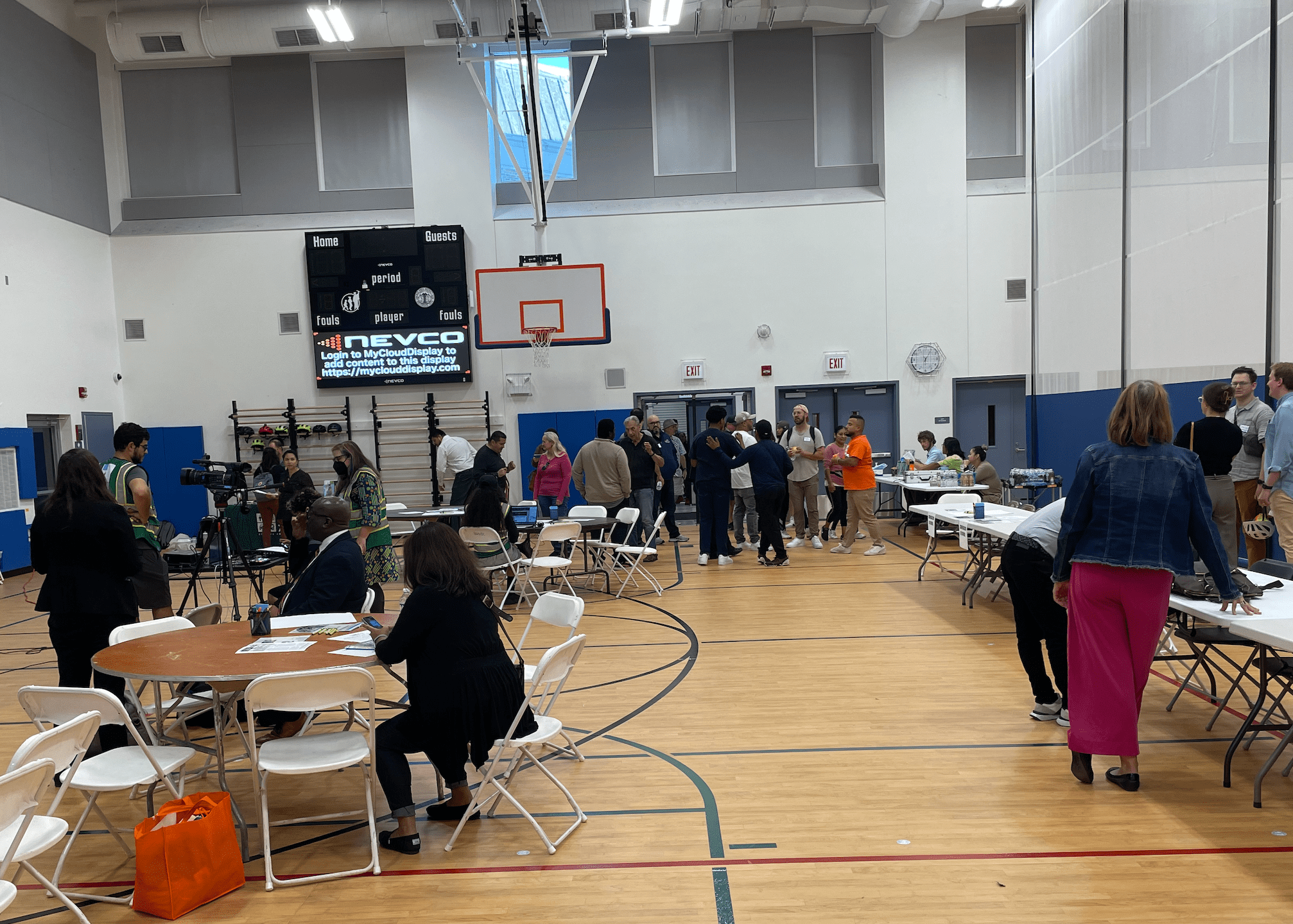
During a Chicago Mobility Collaborative meeting last night at Riis Park Field House, 6100 W. Fullerton Ave. in Belmont Cragin, Chicago Department of Transportation staff said 2023 has been an eventful year for walk/bike/transit improvements. The purpose of these quarterly gatherings is for CDOT staff, ward representatives, and residents to share their perspectives on local transportation issues.
"2023 has been a really incredible year in Chicago when it comes to complete streets and safe streets infrastructure," said David Smith, Complete Streets director for the transportation department. "I think the data and the facts bear that out. In terms of infrastructure, in terms of the number of people riding [bikes], who's riding a bike, the expansion of how people are getting around with e-bikes and cargo bikes and scooters. It's changing so quickly and it's growing so quickly, and the amount of interest at the grassroots level has just exploded with community bike rides all over the city."
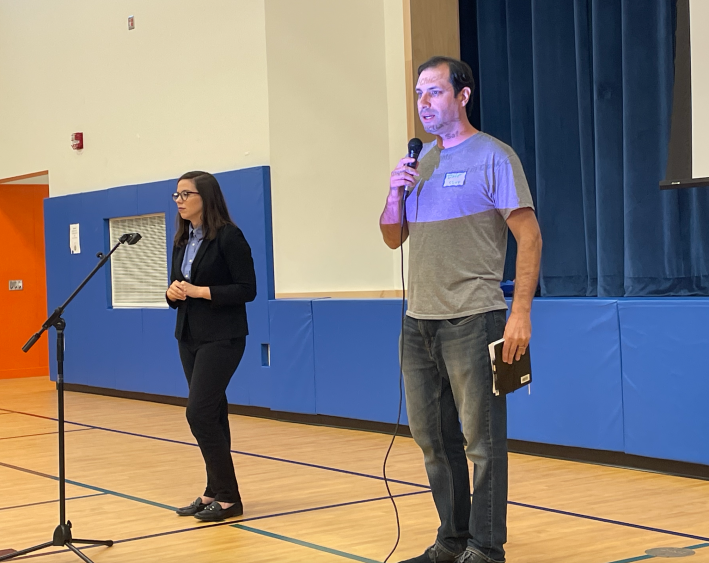
Smith said CDOT is particularly proud of this year's Chicago Cycling Strategy plan, which calls for building 150 miles of new bikeways, 85 percent of which will be low-stress protected bike lanes, neighborhood greenways, or off-street trails. There was applause from attendees after Smith reiterated this goal. He also talked about the Neighborhood Bike Network program, which started in Belmont Cragin in 2021, which has installed 50 miles of bikeways on the South and West side in the past two years.
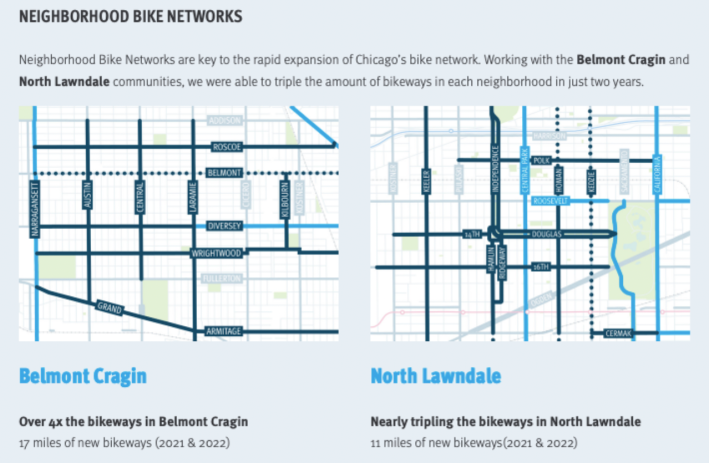
“That strategy of really thinking about biking in terms of a network, breaking down ward boundaries, breaking down other types of barriers, is really the secret and the key to moving this forward," Smith said. "We're doing the same thing on the Far North Side of the city working with the 40th, 48th, 49th, and 50th Wards to develop a comprehensive network that crosses ward boundaries [connecting the] lakefront to the North Shore."
Margarita Reina, senior epidemiologist at the Chicago Department of Public Health, discussed her project to collect data on hit-and-run crashes in Belmont Cragin. A slide show playing behind her included a map of the neighborhood so audience members could see the number of collisions in the area.
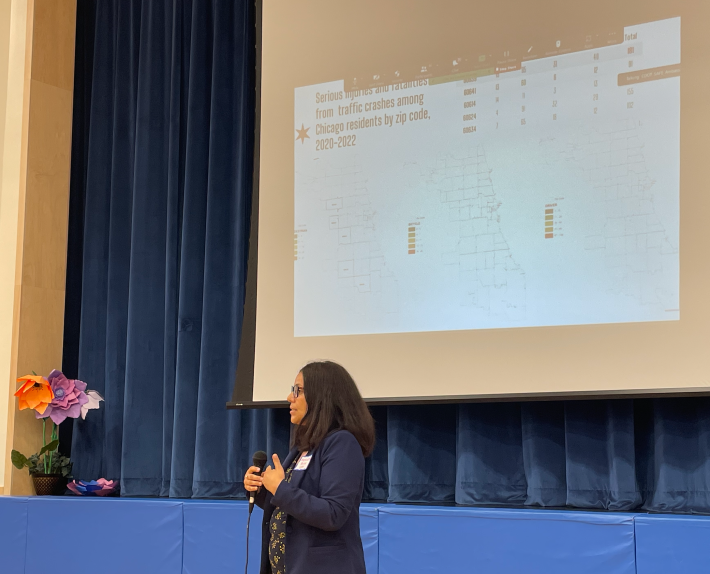
"We talked about bicycling and pedestrian safety and transit," Reina said. "But we also have to think broadly because as a parent of three young children, for some families it's not easy to walk to school, if there's some violence in the neighborhood... some folks might choose to drive."
Following the speakers, the attendees split up into different groups for discussions. Table 1 was called Better Streets for Transit. Table 2 was Beyond the Bike Lane. Table 3 was Accessible and Safe Mobility for All, which discussed public health in the context of transportation. Table 4 was Walkshop, where attendees checked out Belmont Cragin pedestrian infrastructure on foot. There was also a virtual table for those who attended the meeting over Zoom.
At the transit table was Commuters Take Action cofounder Fabio Göttlicher and other members of the grassroots advocacy group. According to Göttlicher, table members were asked about their day-to-day bus use, and asked for their feedback on creating bus rapid transit routes. There was much discussion of the #74 Fullerton bus since many Belmont Cragin residents rely on it.
“Attendees mentioned many factors that make current CTA buses unreliable and hard to plan trips with," Göttlicher said. "A lot of folks feel safer on the bus than the 'L' train, but on the other hand feel that the train is a lot more reliable. We thought that the discussion raised many important points, and are excited for future BRT developments. The CTA representatives also gave updates on the much delayed ‘Better Streets for Buses’ plan. We hope that it will be finalized soon."
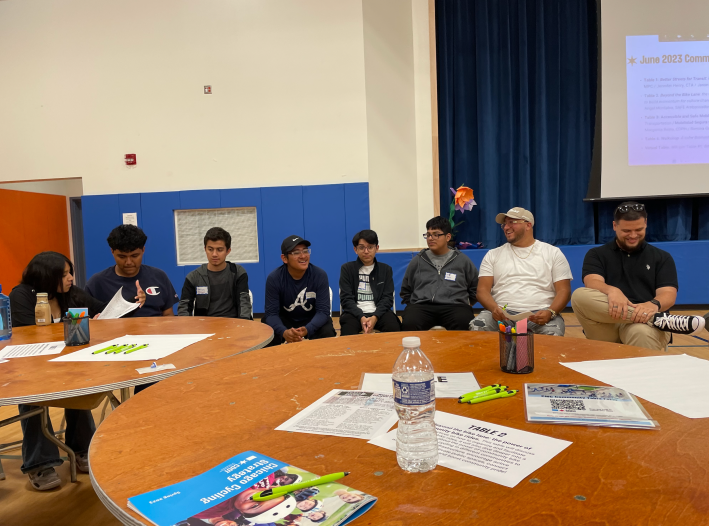
One of the people at Table 2 was transportation activist Mike Perrino, who recently organized a protest of the unsafe walking conditions at the Uptown intersection where a hit-and-run driver killed Soyfa Athamanah, 69, on July 25. Asked for his thoughts on the CMC meeting, Perrino said the speakers at his table were not CDOT representatives, but rather Belmont Cragin community group leaders and members. "Their input and their work is incredibly important, productive, and appreciated."
The next Chicago Mobility Collaborative meeting is scheduled for Thursday, December 7, 6-7:30 p.m. at an Albany Park location TBD.

Did you appreciate this post? Please consider making a tax-deductible donation.
